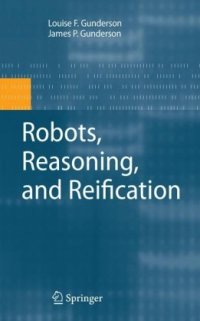
Ebook: Information Theory and Statistical Learning
- Genre: Technique // Electronics: Robotics
- Tags: Theory of Computation, Artificial Intelligence (incl. Robotics), Mathematics of Computing, Communications Engineering Networks, Control Robotics Mechatronics, Statistics general
- Year: 2009
- Publisher: Springer US
- City: New York
- Edition: 1
- Language: English
- pdf
Information Theory and Statistical Learning presents theoretical and practical results about information theoretic methods used in the context of statistical learning.
The book will present a comprehensive overview of the large range of different methods that have been developed in a multitude of contexts. Each chapter is written by an expert in the field. The book is intended for an interdisciplinary readership working in machine learning, applied statistics, artificial intelligence, biostatistics, computational biology, bioinformatics, web mining or related disciplines.
Advance Praise for Information Theory and Statistical Learning:
"A new epoch has arrived for information sciences to integrate various disciplines such as information theory, machine learning, statistical inference, data mining, model selection etc. I am enthusiastic about recommending the present book to researchers and students, because it summarizes most of these new emerging subjects and methods, which are otherwise scattered in many places."
-- Shun-ichi Amari, RIKEN Brain Science Institute, Professor-Emeritus at the University of Tokyo
Robots, Reasoning, and Reification focuses on a critical obstacle that is preventing the development of intelligent, autonomous robots: the gap between the ability to reason about the world and the ability to sense the world and translate that sensory data into a symbolic model.
This ability is what enables living systems to look at the world and perceive the things in it. In addition, intelligent living systems can extrapolate from their mental models and predict the effects of their actions in the real world. The authors call this bi-directional mapping of sensor data to symbols and symbolic manipulation onto real world effects reification. After exploring the gulf between bottom-up and top-down approaches to autonomous robotics, the book develops the concepts of reification from biologically based premises, and follows the development into the necessary components and structures that can be used to provide equivalent capabilities for intelligent robots. It continues by demonstrating how the reification engine supports both learning from experience and creating new behaviors and representations of the world.